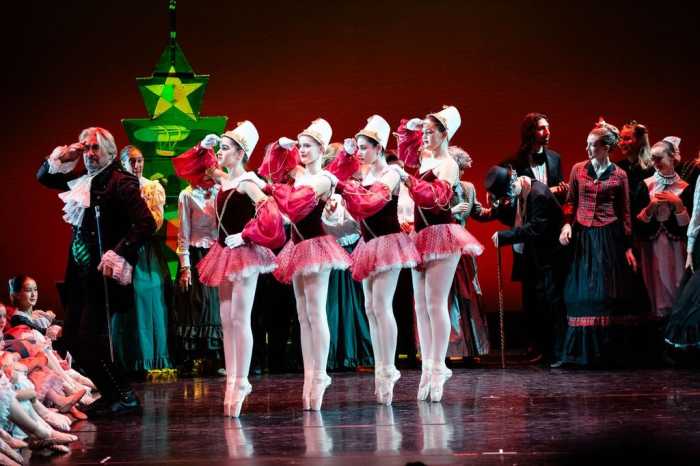Lapham Rising: Monster McMansion Rattles Secluded Novelist

One of the best passages I’ve ever read in a book appears in the opening chapter of fellow Hamptonite Roger Rosenblatt’s Lapham Rising.
Beautiful Cathy Polite, a real estate agent, walks down the sloping lawn of a great East Hampton mansion toward the small wooden dock that sticks out into Georgica Pond. It is 8 a.m. on a Saturday morning. The sky is blue, the sun is warm.
She stops and looks around. Mansions owned by various Masters of the Universe line the shorefront of Georgica Pond, everywhere. She slowly takes off all her clothes. She is about to perform the single greatest marketing move ever by any real estate agent serving the rich, anywhere. And she does this every Saturday morning, exactly at 8 a.m.
Her clothes are stacked up in a little pile. Now naked, she walks out to the end of the dock, stops again—from inside the mansions, people are watching her while pretending to not be watching her—then gathers herself up and dives expertly into the pond. And so the book begins.
Roger Rosenblatt lives with his wife and family in Quogue. He is the Distinguished Professor of English and Writing at Stony Brook Southampton, has written more than a dozen books and thousands of essays, has won Polk, Peabody and Emmy Awards, and has performed hilarious monologues—one most recently that I happily attended at Long Wharf in Sag Harbor. And he gave the keynote speech at the awards ceremony of the Dan’s Papers Literary Festival I hosted several years ago. Other keynote speakers in other years were E.L. Doctorow, Carl Bernstein, Tom Wolfe, Bob Caro, Dava Sobel and Walter Isaacson, so he was in good company.
At that festival, I told him how much I loved Lapham Rising. A friendship followed, mostly long-distance by email. Quogue is a wealthy hideaway off the beaten path at the other end of the Hamptons from where I live in East Hampton, and we carried on by sending witty comments back and forth for a while.
D: How do you play on words?
R: By ear. The way I do everything.
D: Sex too?
R: You’re a sick person, Rattiner
D: Said like a true ear fetishist.
R: You must be thinking of Leopold and Loeb.
Partway through this correspondence, Roger told me that Lapham Rising was being made into a movie. Nothing he’s ever done has been made into a movie. He told me the set for the movie was in Minnesota, which was standing in for the Hamptons. (It’s too expensive filming in the Hamptons.) I’d occasionally get an update from Roger, sometimes even a photo he’d taken up there at the filming in places in Minnesota with names such as Owagonna, Lake Minnetonka, Excelsior (a stand-in for Southampton Main Street) and Wayzata. He had written the screenplay. So they needed him. This was in the spring of 2019.

This film is no small thing. Leading roles are played by Tony winner Stockard Channing (The Good Wife, It’s Only a Play), Tony nominee Bobby Cannavale (Boardwalk Empire) and four-time Tony winner Frank Langella (Frost/Nixon, Fortune’s Fool). Some 20 other actors complete the cast.
One picture from the movie Roger sent me was of the little dog Hector sitting in a rowboat.
“Hector is a boy dog,” wrote Roger. “But when they sent me a photo of the dog who plays Hector, it was a girl.”
How did he know? He had seen the dog’s underside. This was important because Hector is a talking dog—though only the film’s lead character, Harry March, can hear him—so he has a big part and Hector is a boy’s name. Anyway, they worked around it.
According to Rosenblatt, Lapham Rising the movie closely follows the book. And the book takes certain liberties. For example, Georgica Pond has a small island in it. And on it, Harry March, the celebrated novelist now retired, lives with his dog in the only house on the island, a Colonial saltbox built by his forbears in 1675. The two, when the need arises, come and go from the island in a rowboat. They might row off for dog food or the mail.
Mostly, however, people bring them things. Canned goods. Scotch. Harry is an irascible old coot, doing nothing at all on his island but enjoying the waterfowl in the pond and talking to Hector. He drinks a bit. But he’s a nice guy. And he tells visitors he is still working on his new book, when he isn’t. Sometimes a star-struck college student or two will show up to breathlessly ask him questions. He puts up with it. A friend is the real estate agent. Another friend is a town official. The town is glad to have him. Old coot or not.
Trouble begins when a bulldozer shows up to demolish 10 acres of woods on Georgica Pond’s far shore directly opposite Harry’s island. Harry wants to know what is happening. The town official tells him a billionaire named Lapham is building a massive new home—the largest ever built in the Hamptons. A hundred and fifty thousand square feet. And it’s all legal.
As the book, and the movie, progress, this massive project slowly begins to rise. At night, Harry and Hector row over to examine the construction. It is vast, unbelievable, a palace to opulence beyond measure. He walks around. There are movie theaters, a gymnasium, several swimming pools and a waterfall. At one point, Harry writes a scathing letter to Lapham, who he does not know, demanding that it all be taken back down.
One aspect of this new “home” is a huge machine powered by jet engines that controls the weather on the property. It can take in unpleasant clouds, rain or mist, and with the use of high-velocity fans, spit it all back out into the surrounding community, thus providing the Lapham property a steady 80-degree sunny summer’s day.
The book rises to an emotional climax as it reaches the end. Harry has exchanged three letters with Lapham, whose reply essentially is that he is going ahead with it and he doesn’t care anything about Harry, but written to Harry in cloying, friendly, aren’t-we-just-pals syntax, which Harry is convinced has been brushed on by professional public relations persons.
So Harry now proceeds to Plan B. Desperate measures. What he does, on his little island, is build an enormous wooden catapult out of the great pile of junk accumulated over the centuries next to his house. Slowly, we learn what Harry’s mission is. On a dark night just as Lapham is about to move in, Harry is going to place a great many oily rags in the catapult’s bucket, set the pile on fire and launch it across the pond to Lapham’s property and burn this monstrosity to the ground. But I won’t tell you the ending. It’s dramatic, unexpected and, well, I ain’t giving no spoiler alert here.
I didn’t hear from Roger for a few months after our initial email exchanges. And then, in the beginning of March this year, he wrote me the following four sentences.
“Just checking. Are you all right? You can always come to us. Quogue has been self-quarantined since 1636.”
Actually, the East End wasn’t settled until 1640, and that was in Southampton, not Quogue, but never mind.
I told him we were fine but wondered how the film was going since he hadn’t written anything about it in a while. When would it come out? He told me to ask Charlie Kessler, the director. Before I called him, I decided to educate myself by Googling the film Lapham Rising. The latest article about it was published by Deadline.
“This is a gem of a project, with a stellar cast,” one of the producers was quoted as saying. “It’s an honor for us and our partners to be able to bring a production of this pedigree to Minnesota.”
But that was in May of 2019. And it was the latest thing written about Lapham Rising. Exactly a year ago.
Charlie Kessler assured me everything was moving along. Filming is done. It’s in post production and there are special effects and CGI additions being added and it is taking a while. That, and COVID-19, are the only delays. He hopes to have it in the film festivals by the end of the year.
I asked if he’d tell me a bit about himself. He said when he was little, his dad would take the family on vacation to his grandfather’s summer house in Montauk. And he loved the East End.
He’d gone to NYU film school. Then, in 2010, he read Lapham Rising and it knocked him out the same way it knocked me out. So, he went to see Rosenblatt. And said he wanted to make it into a movie. Here it is, 10 years later.
Frank Langella is Harry March. Bobby Cannavale is Lapham. Stockard Channing is Harry’s long-suffering ex-wife. And Catherine Parker is Cathy Polite, the real estate agent whose slogan is “Polite for the Elite.” And yes, it rhymes. Polite is pronounced “Po-LEET.”










